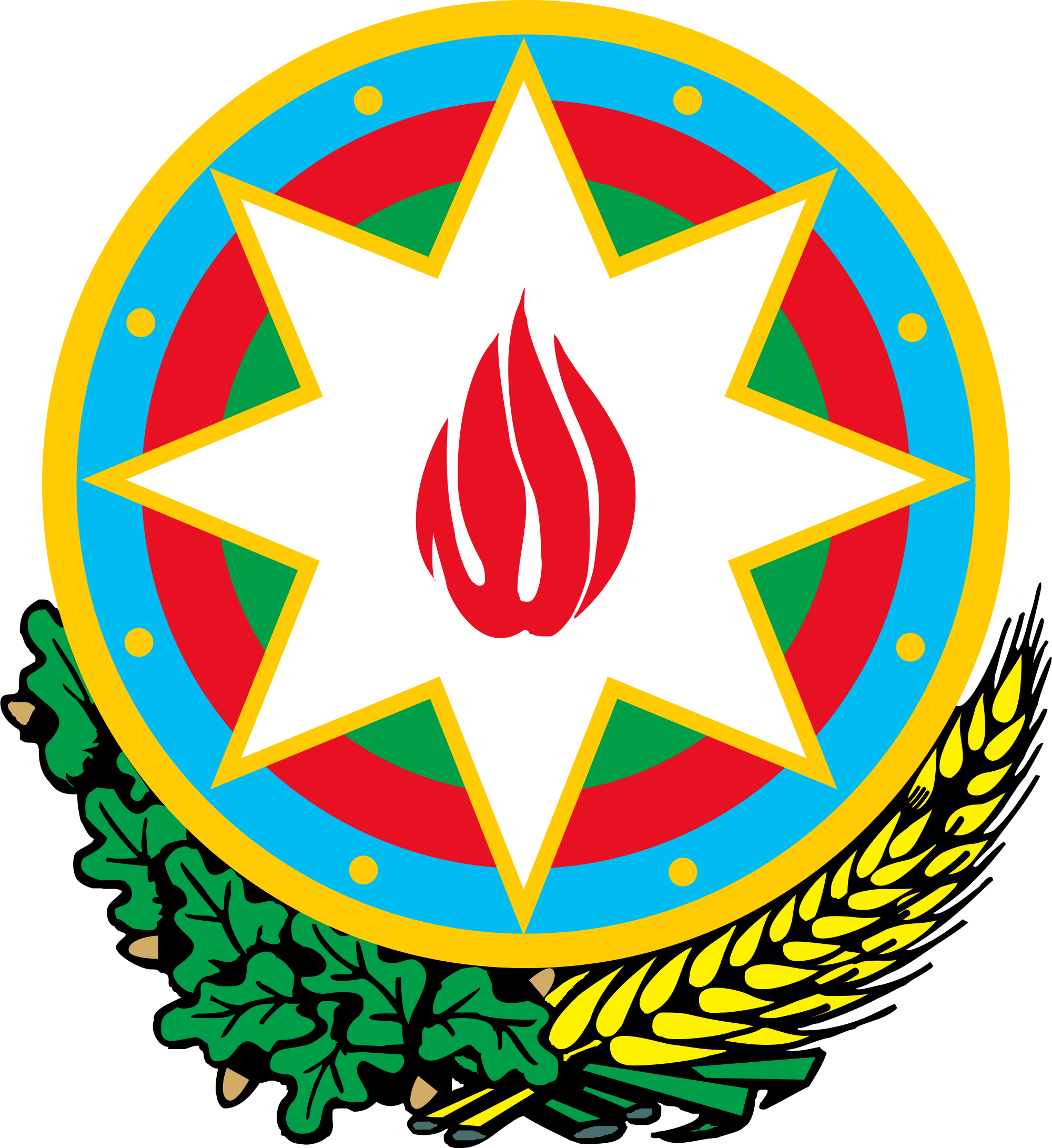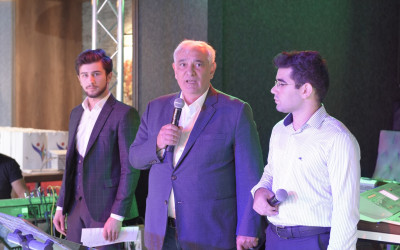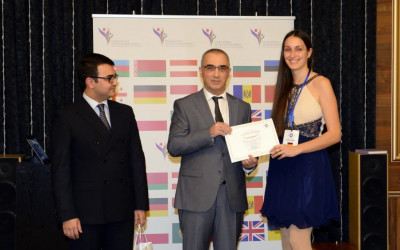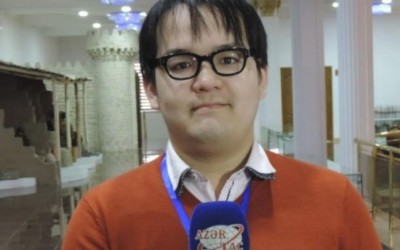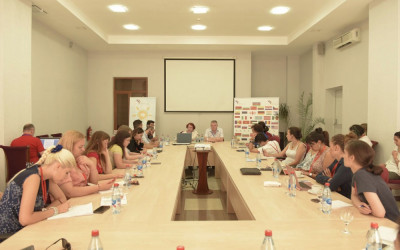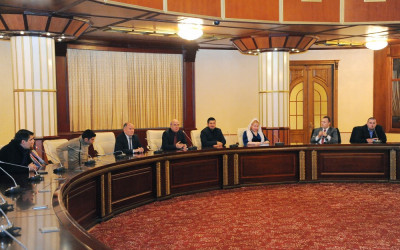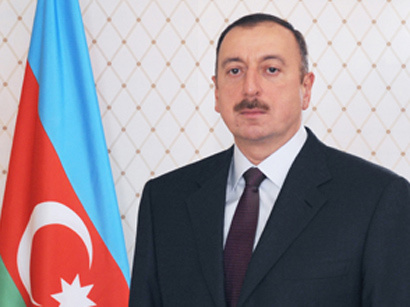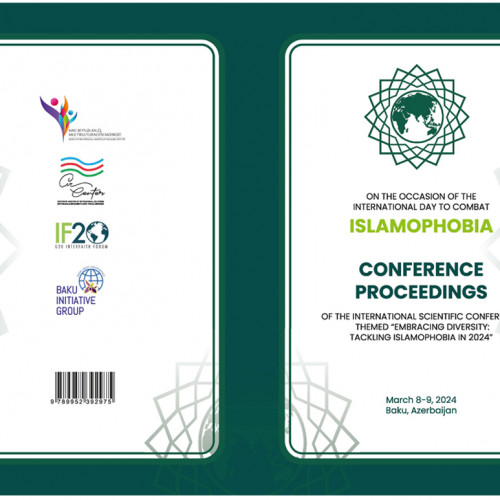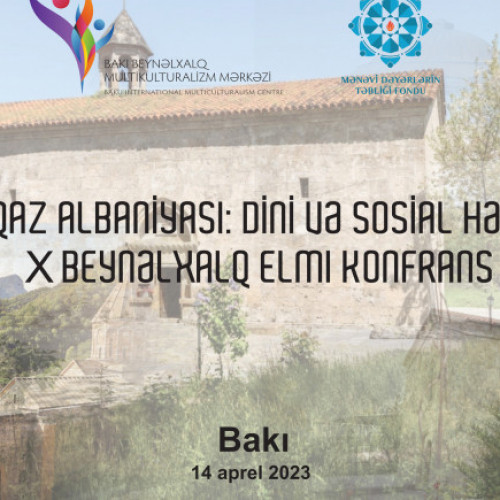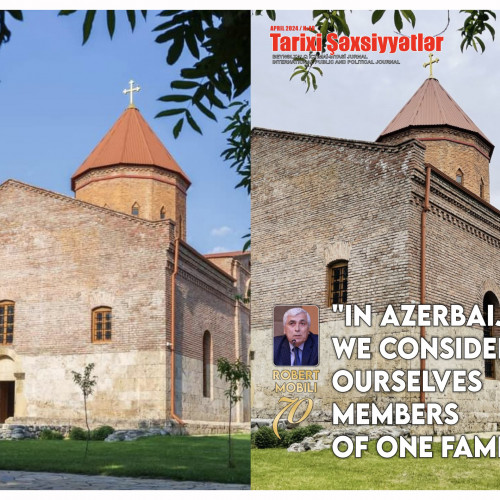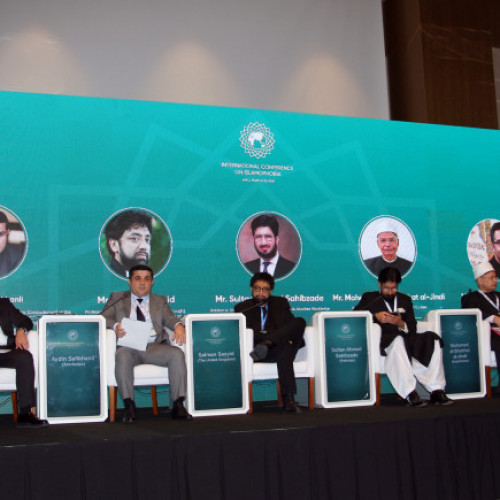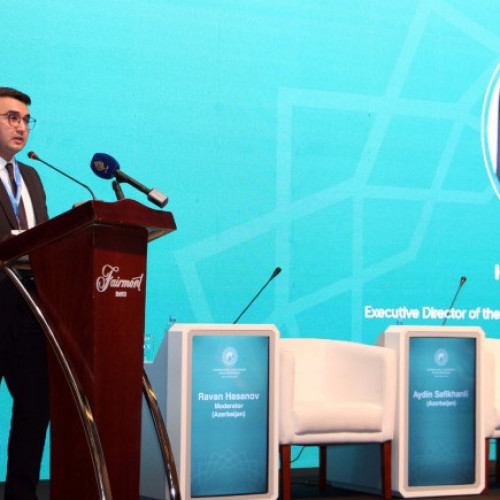Lectures on the Third Day of the International Summer School of Multiculturalism


The VII International Summer School of Multiculturalism titled “Baku Process 10 Years: As a Contribution to the Intercultural Dialogue” and held by the organizational support of Baku International Centre of Multiculturalism continued its work on 1 August.
On the third day of the Summer School the Head of Department of the Ministry of Education of the Republic of Azerbaijan Nijat Mammadli and the Head of the International Projects and Innovations Sector of the Ministry of Culture Ramil Abbakirov read lectures on “Religious Diversity in Azerbaijan” and “Baku Process 10 Years” respectively.
In his lecture Nijat Mammadli focused the attention to the formation of different religious faiths in the territory of Azerbaijan since the ancient times. He stated that religious ideas and creeds have existed in the territory of Azerbaijan since the most ancient times. There has been adoration to the spirits of the ancestors, rocks, trees, different natural phenomena and especially space objects among the Azerbaijanis since the ancient times. The fire rituals and ceremonies surviving through Novruz Holiday testify to the strong traditions of fire-worshipping in Azerbaijan. The temple of fire-worshippers is called “Ateshgah”. The religious centre of Atropatena in the territory of Azerbaijan was situated in Gazakh, and there were also fire-worshippers in Baku, Shamakhi, Salyan and Lankaran.
It was emphasized that the fire-worshippers’ temple “Ateshgah” in Surakhani was built in the XVIII century to serve the fire-worshippers from India. Although fire-worshipping was exposed to persecution in the Caucasian Albania by Christianity, it has managed to survive.
It was pointed out that Zoroastrianism was one of the widely-spread religions in Azerbaijan. Zoroastrianism is considered the most ancient of the religions of revelations. The ancient Greek and Medieval Muslim historians as well as many subsequent researchers consider Azerbaijan the Motherland of Zoroastrianism.
Judaism is one of the religions with its particular place in the history of Azerbaijan. There are three Jewish communities in our country: Mountain Jews, European Jews (the Ashkenazi) and Georgian Jews. At present there are 7 synagogues in the cities of Guba and Oghuz including the capital Baku. Six of them belong to the Mountain Jews and one to the European and Georgian Jews.
It was stated that Christianity in Azerbaijan began to disseminate in the early centuries of the new era. The Apostle Thaddeus was the first to spread Christianity in the Caucasian Albania. Following the Arabs’ arrival in Azerbaijan in the VII century and the collapse of the state of the Caucasian Albania, Christianity began to weaken in the region. At present there are 13 churches in Azerbaijan. Nijat Mammadli said that the new religion introduced to our country by the Arabs – Islam has played an important part in our people’s national spiritual history and culture. After the annexation of Azerbaijan to the Russian Empire two Islamic administrative organs were established in the South Caucasus – the Sunni Religious Office headed by Mufti and the Shia Religious Office chaired by Sheikh-ul-Islam. The religious affairs of the South Caucasian Muslims had been regulated by these two offices till the establishment of Azerbaijan People’s Republic.
It was pointed out that after the collapse of the USSR Azerbaijan entered a new stage in the field of religion. Conditions have been created to advocate and disseminate religion in our country, the equality of all religions and faiths before the Law has been imprinted in the Constitution. In the period of the Presidency of the National Leader Heydar Aliyev many religious-historical monuments have been restored and renovated; special attention has been attached to religious education. This course is being successfully continued by the Azerbaijani President Ilham Aliyev at present.
Nijat Mammadli underlined that the communities of other religious minorities have also been registered and are functioning, along with the mentioned religions.
In his lecture Ramil Abbakirov gave thorough information on Baku Process. He stated that to develop the dialogue and cooperation among the Muslim and Western civilizations as well as the nations and cultures the President of the Republic of Azerbaijan proposed an initiative of “Baku Process” at the conference of the Ministers of Culture of the EU-member states on “Intercultural Dialogue as a Basis for Peace and Sustainable Development in Europe and Neighbouring Regions” in Baku in December 2008. The Conference adopted “Baku Declaration for the Promotion of Intercultural Dialogue”.
It was mentioned that a communique titled “Baku Process – Fostering Dialogue and Cultural Diversity: New Challenge for Dialogue Between Civilizations” was adopted at the meeting held to strengthen the cooperation among the member states of the Organization of Islamic Cooperation and the Council of Europe in these frames at the initiative of Azerbaijan during the VI Conference of the Ministers of Culture of the Islamic Countries in Baku in October 2009, whereas in 2010 “Baku Process” began to turn from the regional initiative into a global challenge.
R.Abbakirov said that numerous international events and projects have been realized in Azerbaijan in the frames of “Baku Process”, also to achieve the goals of this initiative. The forums of the International Intercultural Dialogue held in partnership with the UNESCO, the United Nations Alliance of Civilizations, the World Tourism Organization, the Food and Agriculture Organization of the United Nations, the Council of Europe and the ISESCO have earned the status of global platform in the establishment and development of the intercultural dialogue of the UNO and its structures, in the struggle against race discrimination and intolerance. Holding the VII Global Forum of the UN Alliance of Civilizations in Baku in April 2016 is the outcome of this successful process and activity.
It was emphasized that Baku International Humanitarian Forum holds a special place among the international events too. The Forum has repeatedly brought together the outstanding state figures, the Nobel Prize laureates, the leaders of the prestigious international organizations as well as the prominent members of the political, scientific and cultural elite of the world in order to conduct wide-spectrum dialogues, exchange of views and discussions.
After the lectures there were discussions of the questions interesting the participants.
In accordance with the program the participants of the VII International Summer School of Multiculturalism will have trips to the historical places of Shaki - the ancient Albanian temple in the village of Kish, Shaki Khan’s Palace and the Upper Caravanserai. Further, the participants of the Summer School will make presentations at the musical evening “Present Your Nation”.


Запись Lectures on the Third Day of the International Summer School of Multiculturalism впервые появилась Baku International Multiculturalism Centre.

